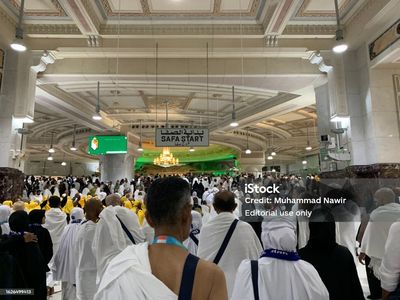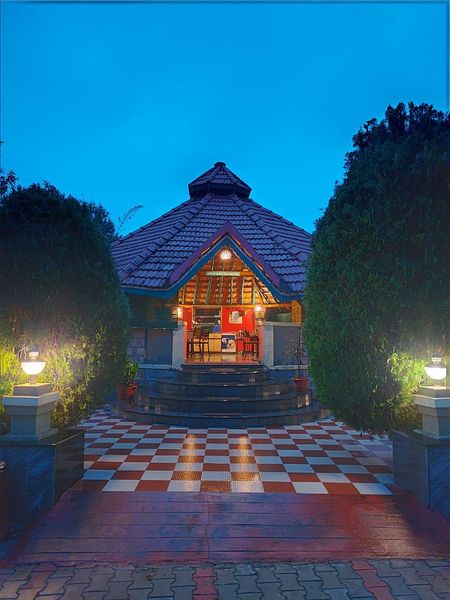The History of Saudi Arabia
 Rosie Rom
07 Aug, 2025
6 mins read
35
Rosie Rom
07 Aug, 2025
6 mins read
35

Saudi Arabia, the heart of the Islamic world, holds a rich and profound history that stretches back thousands of years. From its ancient tribal societies and trade routes to the rise of Islam and the formation of the modern Kingdom, Saudi Arabia has always played a pivotal role in shaping regional and global history. Today, it stands not only as a political and economic force but also as the spiritual center for millions of Muslims embarking on the Umrah journey and other sacred pilgrimages.
Ancient Roots and Pre-Islamic Arabia
Long before the birth of Islam, the Arabian Peninsula was home to a number of nomadic tribes and ancient civilizations. The region of modern-day Saudi Arabia was a key part of trade networks that connected the East and the West. Cities like Mecca and Yathrib (later renamed Medina) were important centers of commerce and culture.
The Kaaba, now the focal point of the Islamic Umrah journey, existed in Mecca even during this pre-Islamic period. It was surrounded by various tribal deities, and the city drew pilgrims from across Arabia.
The Birth of Islam: A Transformational Era
The most defining chapter in Saudi Arabia history began in the 7th century CE with the birth of Prophet Muhammad (PBUH) in Mecca. In 610 CE, he received the first revelation of the Quran, marking the beginning of Islam.
- Mecca and Medina became the two holiest cities in Islam.
- The Hijrah (migration) of the Prophet to Medina in 622 CE marked the start of the Islamic calendar.
- After years of struggle, the Prophet returned to Mecca, establishing it as the religious center of the Islamic world.
Today, millions undertake the Umrah journey, a non-mandatory but deeply spiritual pilgrimage to Mecca, often described as a life-changing spiritual journey that connects believers to this sacred history.
The Caliphates and Islamic Empires
After the Prophet death, Saudi Arabia became the center of the early caliphates. Though the capital of the Islamic empire eventually moved to other regions, Mecca and Medina remained spiritually central.
The region was ruled by various Islamic dynasties over the centuries, including the Umayyads and Abbasids, and later came under Ottoman influence.
The Rise of the Saudi State
The foundation of the modern Saudi state began in the 18th century with an alliance between Muhammad ibn Saud, the founder of the first Saudi state, and Muhammad ibn Abd al-Wahhab, a religious reformer. This alliance laid the foundation for the religious and political ideology that still influences Saudi Arabia today.
The Kingdom went through three main phases:
- First Saudi State: A religiously motivated political alliance.
- Second Saudi State: Short-lived due to internal conflicts.
- Modern Kingdom (Established 1932): Founded by King Abdulaziz Al Saud, who unified the various tribes and regions into the Kingdom of Saudi Arabia.
Saudi Arabia in the Modern Era
Since its unification in 1932, Saudi Arabia has undergone rapid transformation:
- Oil Discovery (1938): The discovery of vast oil reserves changed the nation economy, turning it into one of the world richest and most influential countries.
- Vision 2030: A national initiative launched to diversify the economy, promote tourism, and modernize the country while preserving its Islamic values.
Today, Saudi Arabia is opening up to the world, welcoming not just religious pilgrims but also tourists and investors. Yet, the spiritual journey remains central to its identity.
The Significance of the Umrah Journey
While Hajj is a mandatory pilgrimage for all able Muslims, Umrah can be performed at any time of the year. It is a shorter pilgrimage but holds immense spiritual value. For many Muslims, visiting the holy sites in Mecca and Medina is a deeply emotional and spiritual journey that strengthens faith, brings inner peace, and fosters a deeper connection with Islamic history.
Saudi Arabia has invested heavily in improving the facilities for pilgrims, making the Umrah journey more accessible and comfortable for Muslims from around the world.
Conclusion
Saudi Arabia history is a powerful narrative of faith, resilience, and transformation. From ancient trade routes and the rise of Islam to the modern Kingdom ambitious vision for the future, the country continues to shape the religious and cultural identity of the Muslim world.
For those who embark on the Umrah journey, it is not just a visit to a historical land but a sacred and spiritual journey through time walking the paths of prophets, praying in mosques that have stood for centuries, and experiencing the deep soul connection that only such a place can offer.
Written By:
Rosie Rom



Hotels at your convenience
Now choose your stay according to your preference. From finding a place for your dream destination or a mere weekend getaway to business accommodations or brief stay, we have got you covered. Explore hotels as per your mood.


